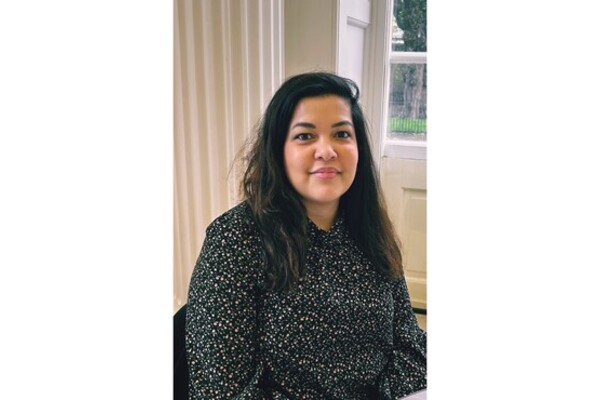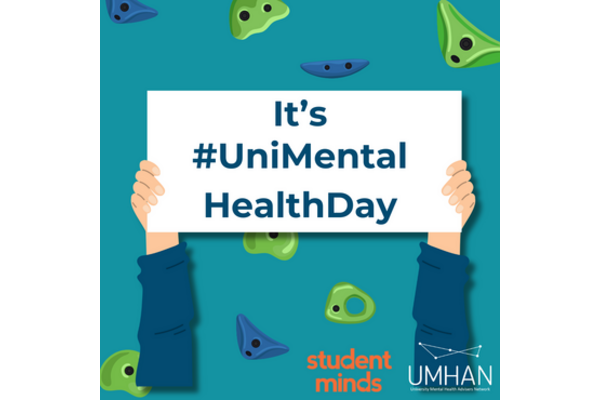
My journey
My journey into the field of student mental health began during my undergraduate studies in psychology. While exploring various topics within the discipline, I developed a particular interest in mental health, especially in relation to students. My final year dissertation focussed on the impact of financial stress on student mental health and whether university friends are a stress buffering factor.
After completing my degree, I worked at the University of Sheffield (TUoS) Student Mental Health, Counselling and Therapies Service (SMHCTS) where I gained valuable experience working directly with students experiencing difficulties with their mental health.
As a first point of contact and also working on reception, I would often meet students who were in distress or highly anxious about their appointment. In these situations, I was able to learn how to convey empathy and kindness while also reassuring and informing students about how the service works.
I also supported students to sign up and attend groups run by the service such as an ADHD group and a Mind, Body, Emotions group. A personal highlight while working in the service was helping to facilitate two dog therapy events for students to promote social interaction, a sense of fun and also to give them the chance to meet some of the counsellors and mental health practitioners in the service in a more relaxed environment.
SHARE Study
The SHARE project's goal was to explore the mental health and well-being experiences of university students, while also assessing the effectiveness of commonly used tools in university support services. The online survey aimed to validate these tools, evaluate their relevance in addressing student needs, and gather insights into students' experiences during the assessment process.
Due to a gap in knowledge on the acceptance of mental health measures within the male population and minority ethnic groups, the study had a particular focus on their experiences.
As a research advisor, my role after data had been collected involved being part of the thematic analysis and coding of students’ responses. Working alongside the SHARE team, we individually coded student feedback before coming together with the other SHARE Student Advisors.
Collectively we analysed over 6000 views from students across approximately 180 universities to make sense of students’ experiences using and improving mental health and wellbeing measures.
It was a great learning opportunity for me and I was very grateful that my views were listened to, even though they were largely based on my own personal experience.

Experiences as a student
This experience deepened my passion for understanding the unique pressures students face. For example, the long-term impact of the pandemic, the huge cost of living pressures, relationship difficulties, anxiety, depression and of course academic stress. I was incredibly pleased when I was asked to contribute to the Students’ mental Health Assessment, Reflections and Experiences (SHARE) Study to represent the SMHCTS and this led me to take on the role as a research advisor on the project.
My own personal experiences as a university student during the COVID-19 pandemic also shaped my interest in this research. Like many others, I faced a significant shift in my academic and social life. The isolation of remote learning, lack of face-to-face interaction, and uncertainty about the future were overwhelming at times. I saw first hand how these challenges affected my own mental health, as well as the well-being of my peers.
I found it really eye-opening to be able to compare and relate my own experiences to those of other students who, although are not faced with a pandemic, undoubtedly have equally as stressful social, environmental and economic challenges they are facing.
Getting the balance right
I found the differing responses from students to questions around self-harm and suicide particularly interesting and this highlighted the importance of individual differences and experiences for me. When asked about the difficulty in answering any of the questions and any suggestions for improvements, one student commented:
I think a warning should be given at the start about questions to do with self-harm or suicide as these can be very triggering for people who have experienced loss of friends or family to this.
While another responded:
I think asking more direct questions about suicidal thoughts/actions, self-harm, drug/alcohol use etc would be helpful. mental health is more than just feeling happy or not. so i think more focus on specific behaviours too.
These responses illustrate the delicate balance required in addressing mental health in a way that is both sensitive and comprehensive, taking into account individual needs and experiences. It’s a reminder of the necessity to approach these issues with care, ensuring that mental health assessments are inclusive and respectful of varied emotional and psychological experiences.

The complexity of student mental health
My experience contributing to this research highlighted the differences in students’ opinions and perceptions. Where one student may find a particular measure makes them reflect on their mental health and wellbeing in a positive way, another may find it intrusive and overbearing.
What stood out to me most was the diversity of student experiences and that mental health issues are often multifaceted, influenced by academic pressures, social environments, and personal struggles.
Being part of a project that could potentially influence not only measures of mental health and wellbeing but also policies and practices in student mental health support was incredibly inspiring. The project has highlighted the complexity of students’ mental health and the importance of institutions investing in and creating environments where students feel safe seeking help and accessing mental health and wellbeing resources. It's an area where research can make a real, tangible difference in the lives of students, and this experience has deepened my commitment to continuing research in this field.

The value of listening to often unheard students
Although I have moved on from TUoS, I still feel very strongly about the importance of understanding more about student mental health. What I really appreciate about the aims of the SHARE project is its focus on the experiences of often unheard and unrepresented students. I now work for a rehabilitation service which supports individuals with spinal injuries, amputations, severe traumatic brain injuries and other complex trauma injuries to reach their full potential and rebuild their lives following life changing injuries. This experience not only reinforces my passion for a career in psychology but also in supporting individuals in their recovery and highlights the crucial role of psychological research in improving care and outcomes.
Molly Lodder-Knowles, February 2025.
With thanks to Dr. Emma Broglia, University of Sheffield.
For more information about the SHARE study including outputs please visit:
We are pleased to welcome Dr. Emma Broglia to speak to UMHAN members about the SHARE study at our Lunch & Learn event in February:









